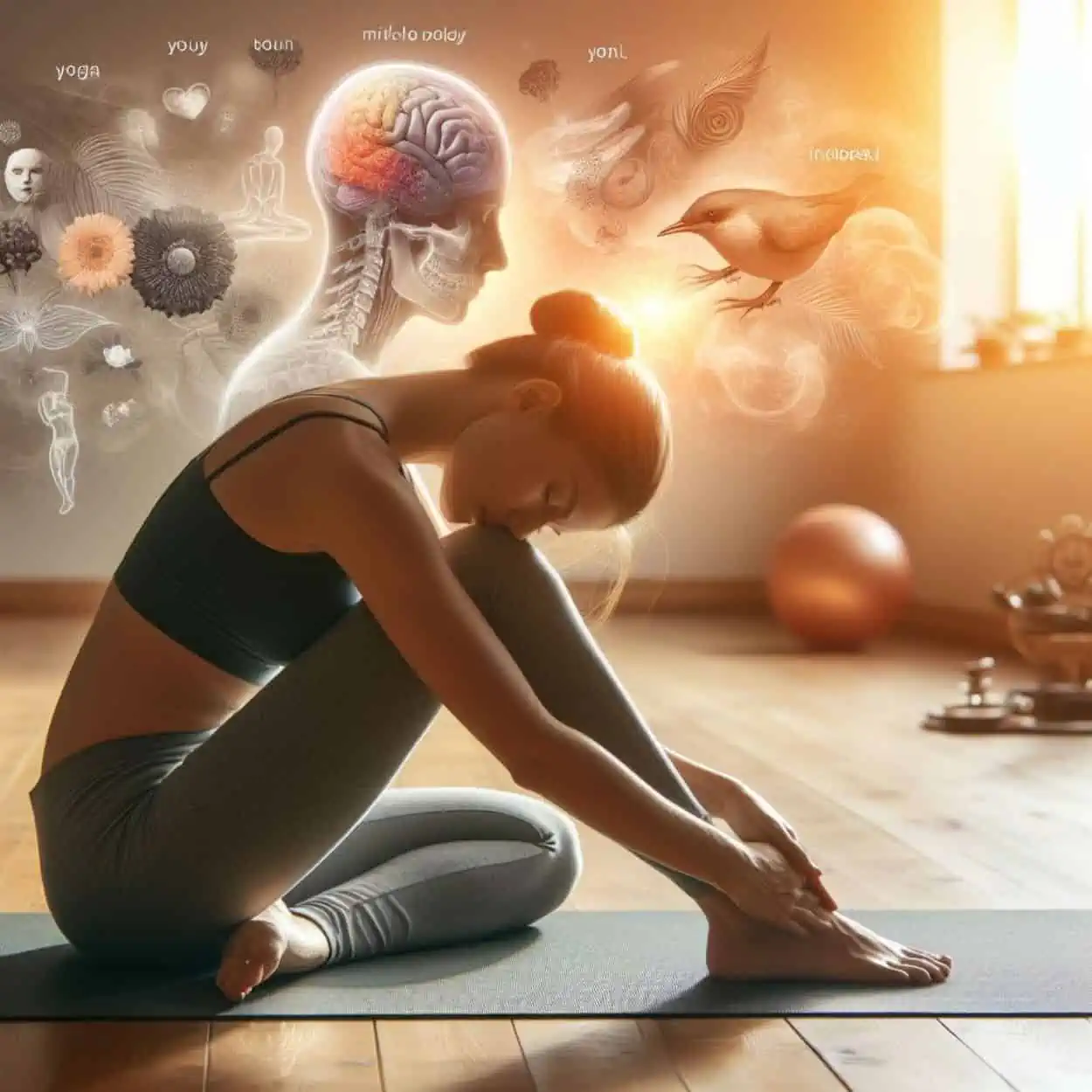In the fast-paced world we live in, where constant movement and productivity often take precedence, finding moments of stillness and connection with the self becomes essential. Yin Yoga, a gentle yet profound practice, offers a sanctuary for individuals seeking to harmonize their mind and body, fostering a deeper sense of self-awareness and inner peace.
Understanding Yin Yoga: A Journey into Stillness
Yin Yoga is a unique and contemplative form of yoga that focuses on long-held, passive poses designed to target the connective tissues in the body—tendons, ligaments, and fascia. Unlike its more dynamic counterpart, Yang Yoga, which involves active and flowing movements, Yin Yoga encourages practitioners to surrender into poses for extended periods, typically ranging from 3 to 5 minutes.
The philosophy behind Yin Yoga is rooted in Taoist principles, particularly the concept of Yin and Yang—complementary forces that balance each other. In this context, Yin represents stillness, passivity, and receptivity, while Yang embodies movement, activity, and assertiveness. The practice of Yin Yoga aims to bring equilibrium to these opposing forces, creating a harmonious interplay within the body and mind.
Mindful Stillness: The Gateway to Mind-Body Connection
In the hustle and bustle of daily life, the mind often races from one thought to another, leaving little room for self-reflection and introspection. Yin Yoga provides a sanctuary for cultivating mindfulness and awareness through intentional stillness. As you settle into a pose, the emphasis shifts from muscular engagement to surrendering into the present moment, allowing the mind to quieten and the body to release tension.
The extended duration of Yin poses serves as a meditative practice, inviting practitioners to observe their thoughts without judgment and connect with the sensations arising in the body. This mindful stillness becomes a gateway to the mind-body connection, fostering a deeper understanding of the self and promoting emotional well-being.
Balancing Energy: The Meridian System in Yin Yoga
Yin Yoga is also deeply rooted in the ancient Chinese concept of the meridian system, a network of energy pathways that flow throughout the body. Each yin pose is associated with specific meridians, influencing the flow of vital energy or “qi” within the body. By holding poses that stimulate these meridians, practitioners can balance and enhance the energetic aspects of their being.
For example, the Butterfly Pose targets the kidney and bladder meridians, promoting the flow of energy associated with the water element. The Dragon Pose stimulates the liver and gallbladder meridians, releasing tension and encouraging the smooth flow of qi. These poses not only provide physical benefits but also contribute to a harmonious flow of energy, promoting overall well-being.
Cultivating Patience: Yin Yoga’s Gift to the Mind
In a world that often values speed and efficiency, Yin Yoga invites practitioners to embrace the art of patience. Holding poses for an extended period may initially evoke discomfort, both physically and mentally. However, it is within this discomfort that profound transformation occurs.
The practice of patience in Yin Yoga becomes a metaphor for navigating life’s challenges with grace and resilience. As you learn to breathe through discomfort on the mat, you develop the capacity to face difficulties off the mat with a calm and composed mind. The stillness in Yin Yoga becomes a training ground for cultivating patience, a valuable skill in the journey towards a more profound mind-body connection.
Embracing Vulnerability: The Emotional Release of Yin Yoga
The yin poses, with their prolonged holds and gentle pressure, often serve as a catalyst for emotional release. Stored tension in the body can manifest as emotional blockages, and the stillness of Yin Yoga provides a safe space for these emotions to surface and be acknowledged.
As practitioners surrender into poses, they may find unexpected waves of emotions—joy, sadness, or even a sense of vulnerability. Through mindful breathing and acceptance, Yin Yoga encourages individuals to embrace these emotions without attachment or judgment. This emotional release becomes a therapeutic aspect of the practice, allowing practitioners to process and release pent-up emotions, fostering a healthier relationship with their emotional well-being.
Yin Yoga for All: A Practice for Every Body and Mind
One of the beauty of Yin Yoga lies in its accessibility. Whether you are a seasoned yogi or a beginner, the practice can be adapted to suit individual needs and abilities. Props such as bolsters, blankets, and blocks can be incorporated to provide support and enhance the experience for those with physical limitations.
The gentleness of Yin Yoga also makes it an ideal practice for individuals recovering from injuries or dealing with chronic pain. The emphasis on stillness and surrender allows for a therapeutic approach, promoting healing both physically and emotionally. As the practice unfolds, individuals of all ages and fitness levels can discover the transformative power of Yin Yoga in cultivating a profound mind-body connection.
Conclusion: Nurturing the Soul through Yin Yoga
In a world that often emphasizes constant movement and external achievements, Yin Yoga stands as a gentle yet powerful reminder of the importance of stillness and inner connection. Through the practice of mindful stillness, intentional breathwork, and the surrender into yin poses, individuals can embark on a journey of self-discovery and cultivate a deeper mind-body connection.
Yin Yoga is not merely a physical practice but a holistic approach to well-being, addressing the subtle energies within the body and the intricate dance between the mind and the soul. As you embrace the art of patience, navigate emotional release, and find balance in the meridian system, Yin Yoga becomes a profound tool for nourishing the soul and fostering a harmonious relationship with the self.
In the sanctuary of a Yin Yoga practice, where stillness is not a void but a space for self-discovery, individuals can embark on a transformative journey towards greater peace, presence, and a profound mind-body connection.
Also Read:
➤ Yin Yoga for Spinal Health
➤ Yin Yoga for Self Care
➤ Yin Yoga for Emotional Release: Nurturing Your Mind and Body
➤ Yin Yoga for Tight Calves
➤ Yin Yoga for Upper Body Tension
